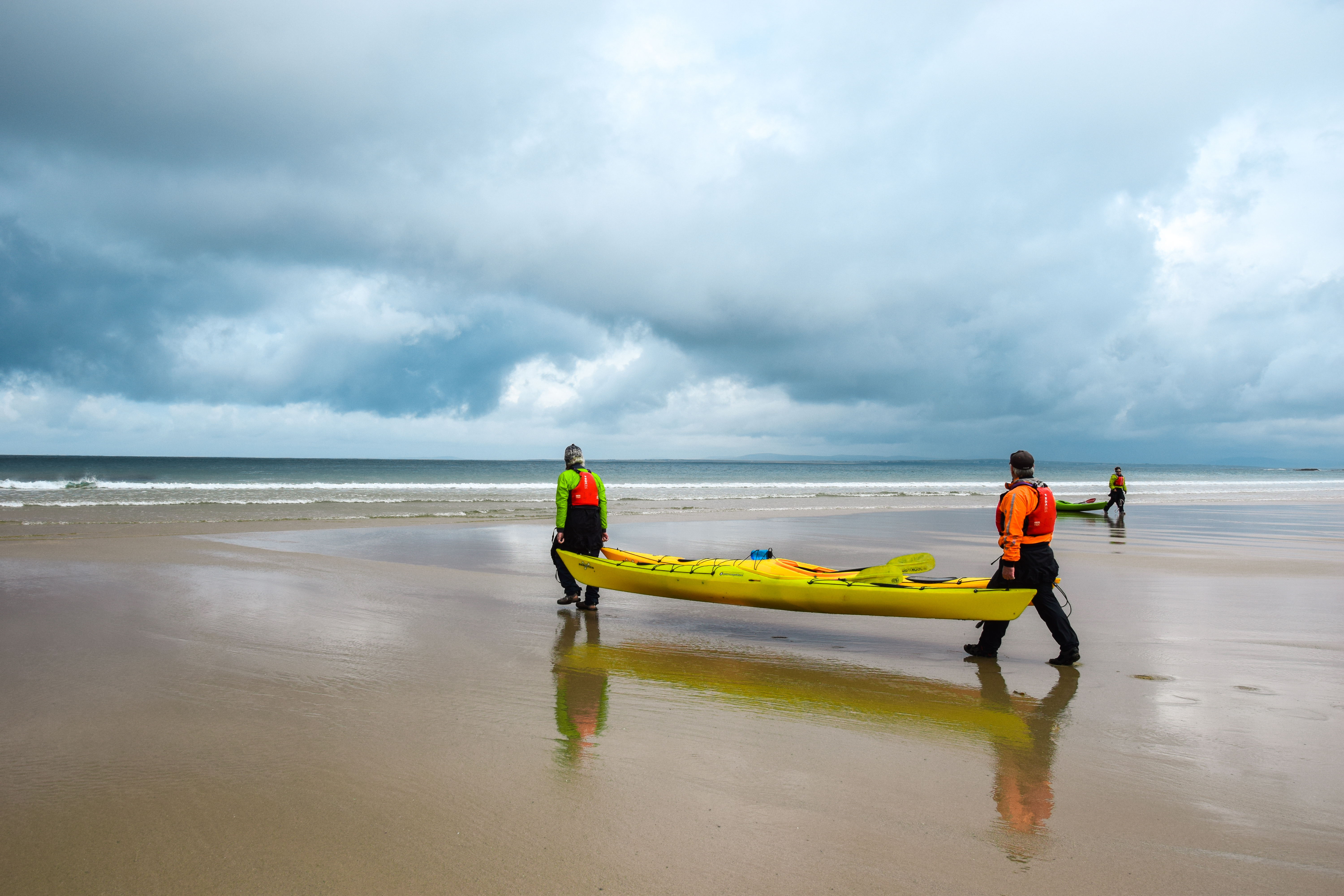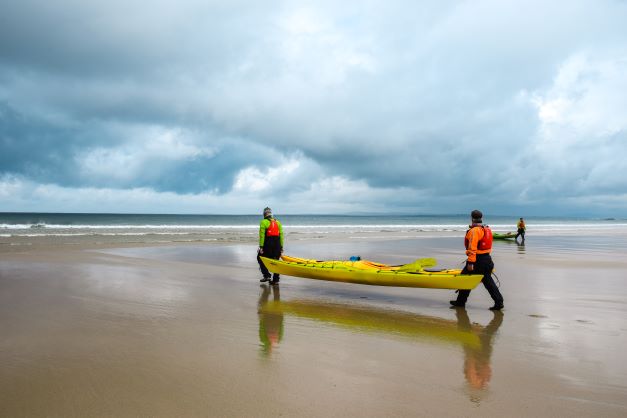We use cookies to improve our services. Read more about how we use cookies and how you can refuse them.
Lessons learned - Achill Island Project Meeting
Achill Exchange
Introduction
On June 13th to the 17th, the SEE Project partners gathered in Ireland for the largest exchange so far in the project. The exchange took place in the Achill Outdoor Education Centre (OEC), is Ireland's oldest Outdoor Education Centre, established on Achill Island for over 50 years.
For the Ireland Exchange, an overarching theme of the exchange was a review and further development of the SEE Project toolkit. Building on this, each day of the exchange had one dedicated theme: Inclusion, Environmental Ethics, and Community Engagement. The exchange deployed a range of engagement tools, including interactive exercises and discussion sessions, versatile presentations from partners and experts, and several sports activities which gave participants a better understanding of these topics.
DAY 1: Inclusion
Day 1 began with Noel Doyle (Leave No Trace Ireland) officially opening the exchange and Barbara Eigenschenk providing a summary of the Toolkit's development. Following introducing the topic for the day, EUROPARC Federation presented the participants with an interactive World Café session. A series of questions were designed to spark the discussion of partners. This session generated versatile reflections, including rethinking equipment buying habits, teaching people how to repair their gear, recycling, and resource sharing. In addition, the topic of minorities and income issues were discussed, as well as the visibility of different role models in Outdoor Sports.
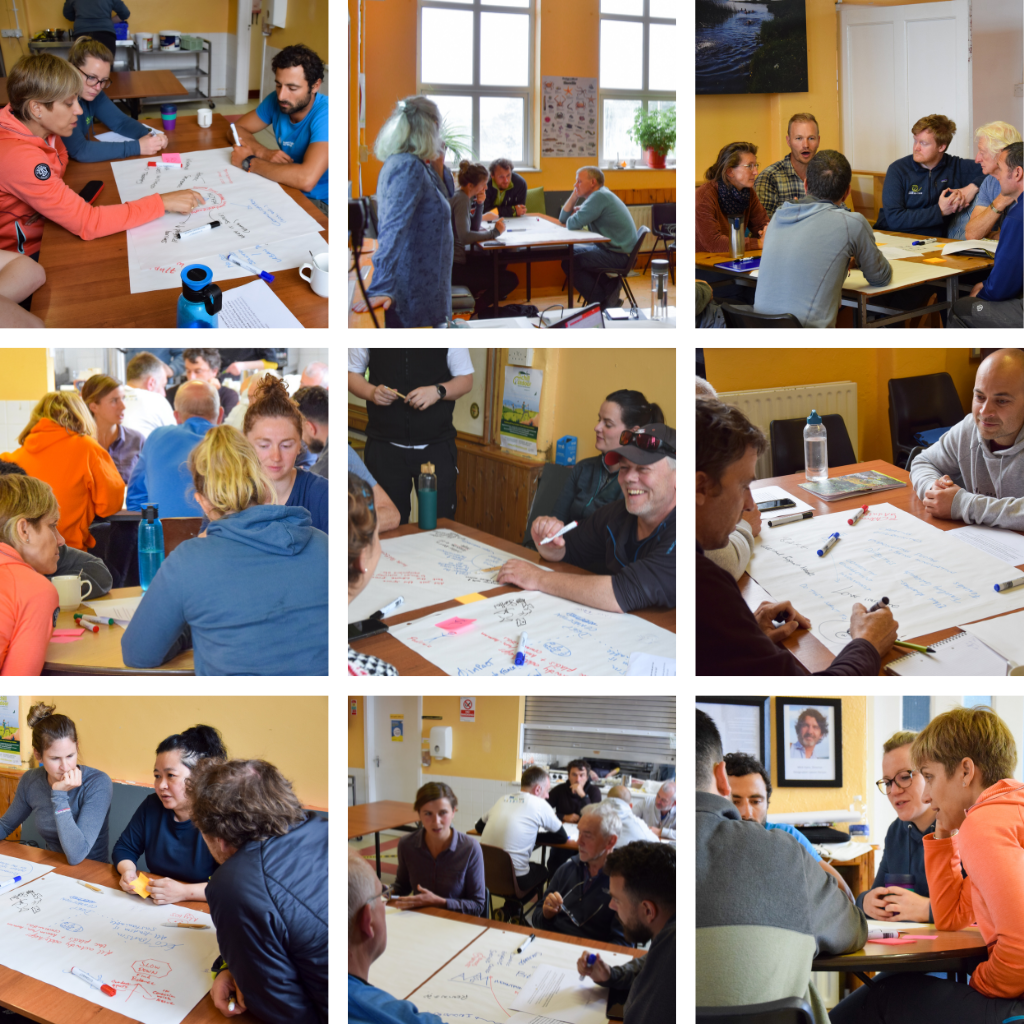
Michael Kane, Director of Achill OEC, greeted the exchange participants, and provided a history of Achill OEC. Michael then discussed steps taking by Achill OEC to cater to physical and mental inclusivity.
In the afternoon, practical activity sessions were facilitated by the Achill OEC and Atlantic Technical University (ATU, formerly known as GMIT). Participants were split into two groups and engaged in either sea-kayaking or surfing. The topics of inclusivity were discussed between the expert guides and participants.
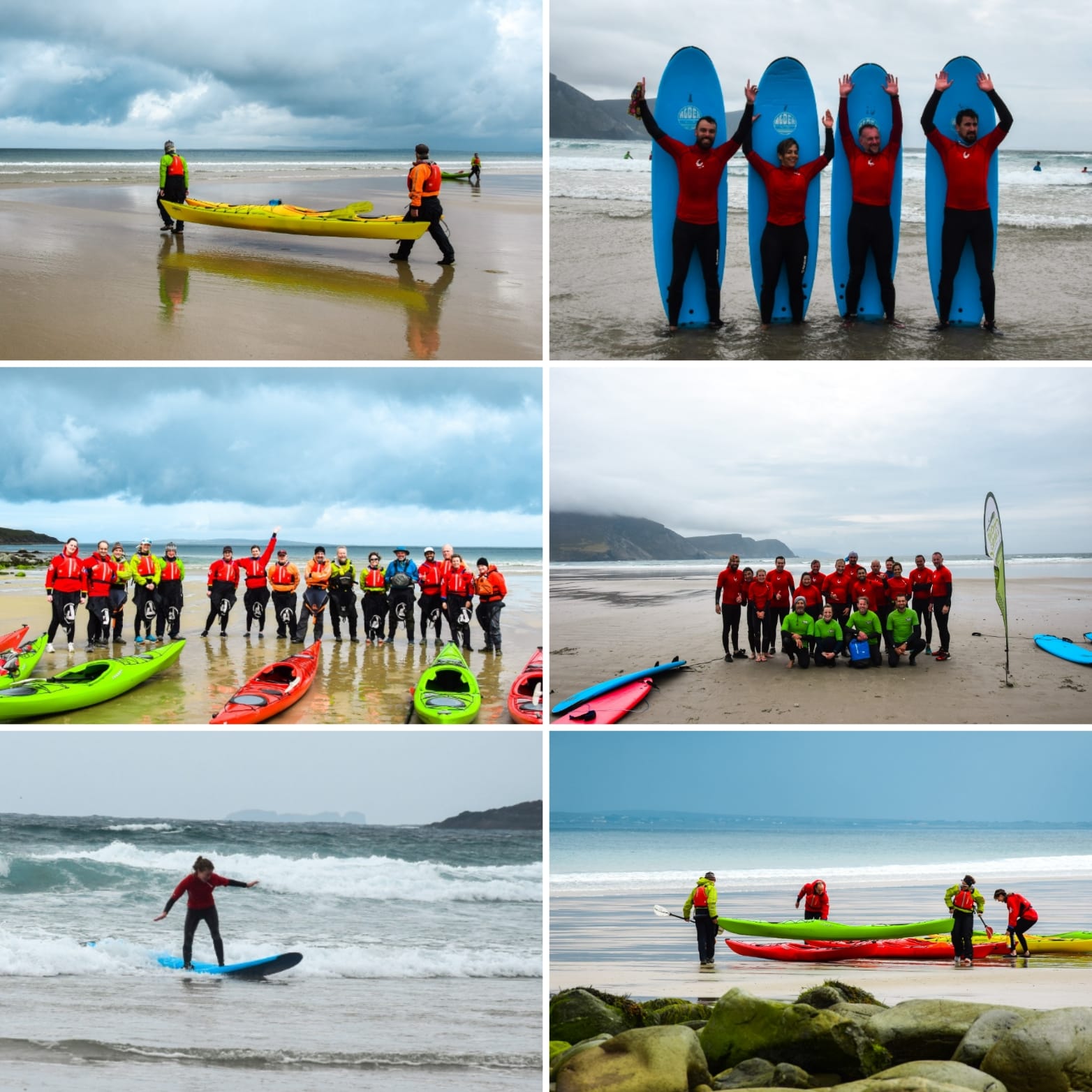
Mike McClure from Sport NI demonstrated a Toolkit Methodology for consideration of the Partnership. The partners discussed and offered alterations to the proposed methodology. This methodology was the use of a Food Web, to demonstrate the intrinsic nature of ecosystems and the need to protect all species within those ecosystems.
Myles Farnbank, Head of Guides & Training at Wilderness Scotland, and Professor Peter Higgins from the University of Edinburgh provided their experiences with developing outdoor toolkits throughout the week. They offered their insights into how to advance the work of the SEE Project, including barriers and enablers in ensuring their success and how to enhance learning experiences.
Afternoon presentations were delivered by the CREPs team, which discussed their experiences with the Garantie Jeune et Invisible (Young and Invisible Guarantee) Project, which increased inclusivity in outdoor sports, with the to create confidence in young people who were struggling to enter employment. The project demonstrated that increased inclusivity in sports had both personal and social benefits for participants, who felt they had fewer limitations as a result of reaching the summit of a mountain.
Rachel Shawe from Leave No Trace Ireland introduced the work of Leave No Trace Ireland and discussed the national public awareness campaign, Love This Place, which promotes responsible use of the outdoors across Ireland. The campaign is running for its third consecutive year, and with 9 official campaign partners and over 80 official supporters of the campaign, ensuring a high reach and dissemination across Ireland about protecting the outdoors and reducing negative impacts associated with outdoor recreation. In 2021, the campaign reached over 4 million people over a three-month period.
Day 2: Environmental Ethics
The theme of Day 2 was Environmental Ethics. Noel Doyle provided a synopsis on the activities of the previous day. The Europarc Federation led a collaborative session called "The power of why". The point of this exercise was to focus only on questions. Therefore, participants were asked to overcome their original instinct to respond to their colleagues with an answer and instead—do it with a new question. It required a different level of understanding and listening to each other. Through the exercise, they followed the respective guiding questions. In response, participants re-examined their Outdoor Sports practices and reconsidered their choices related to different activities they engage with. The following activity, hiking along the coast and in the hills, allowed them to search within themselves for answers while enjoying their time in nature.
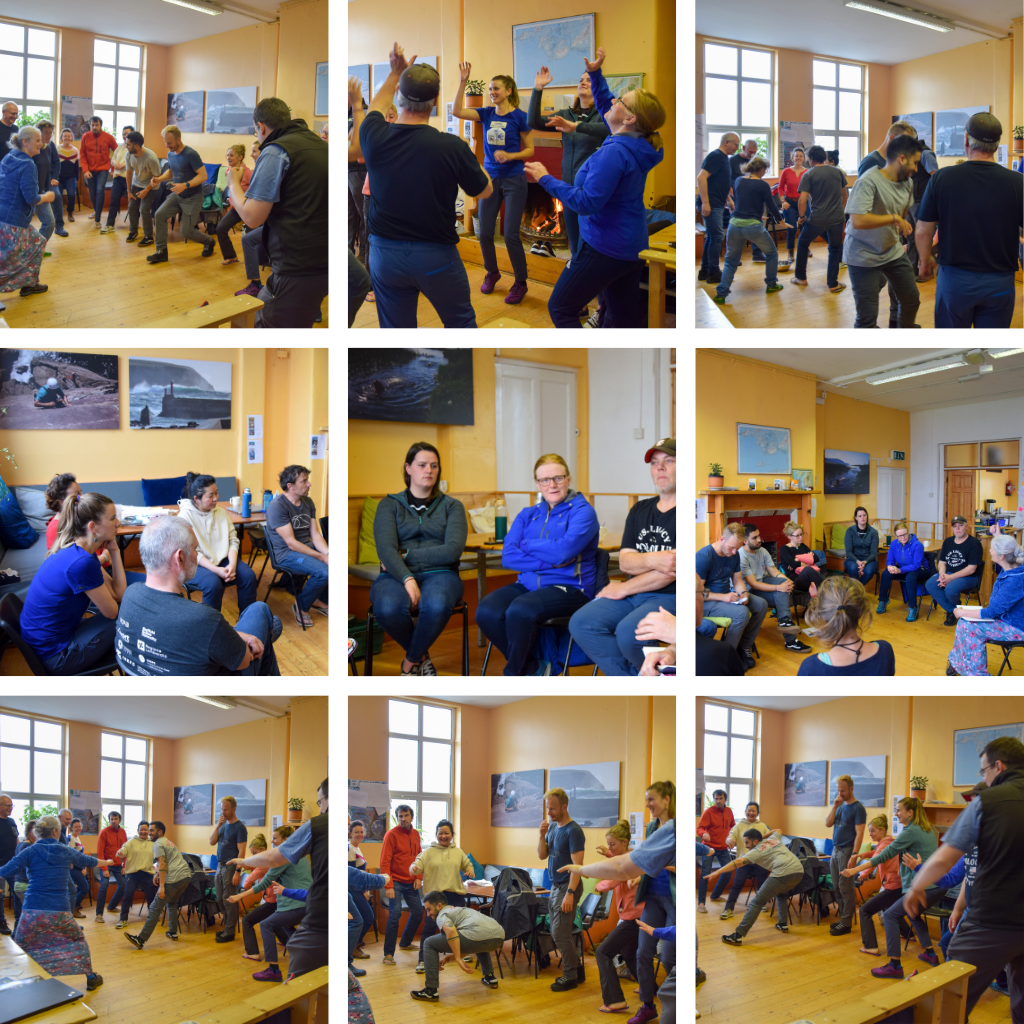
Participants were split into two groups and engaged in practical sessions of hill-walking and coastal walking, with a focus on community engagement. The practical sessions were facilitated by Leave No Trace Ireland, Ged Dowling, and the Achill OEC. These sessions encouraged open discussion among the participants on the concepts of environmental ethics and incorporating the Leave No Trace ethos into outdoor sports.
Afternoon sessions included a toolkit methodology demonstration from Gavin Beetlestone and Padraic Creedon from Leave No Trace Ireland, for consideration of the Partnership. The partners discussed and offered alterations to the proposed methodology. Renato Bentes, from Surf Club de Viana, presented to the group the development of sustainable surfing, and the social and environmental benefits of outdoors sports in Blue Spaces.
In the evening, Georgia Macmillan, Mayo Dark Sky Park Development Officer, led the participants on an evening walk, and discussed the development of Dark Sky Ireland to the group. Their goal is to raise awareness of light pollution in Ireland and to promote the responsible lighting through education and the development of a national policy and strategy in the absence of legislation. There are currently two Dark Sky reserves in Ireland, the Kerry International Dark Sky Reserve and the Mayo International Dark Sky Reserve.
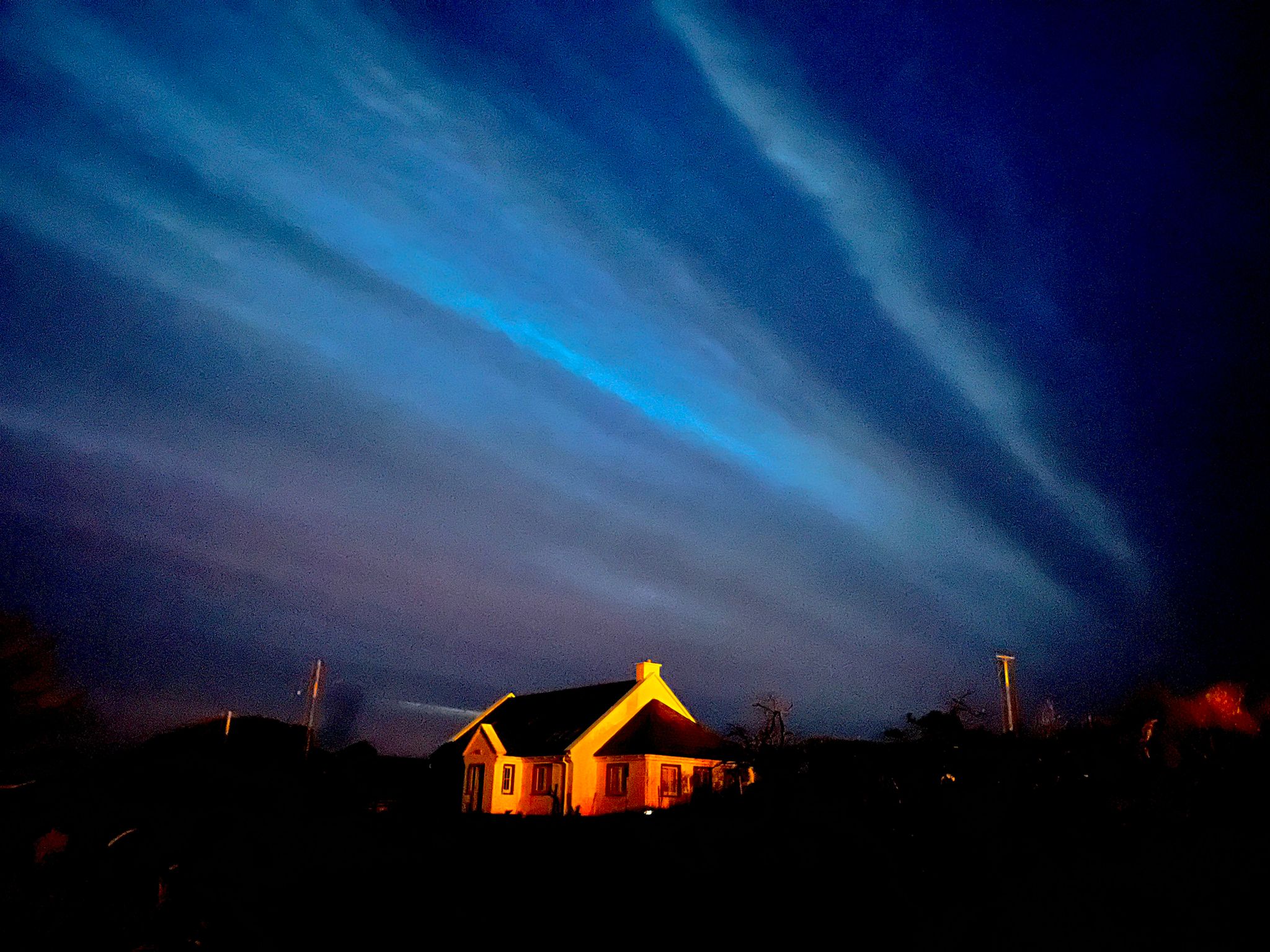
Day 3: Community Engagement
The theme of Day 3 was Community Engagement. Noel Doyle opened the day with a summary of the previous day’s events and ran through the programme for Day 3. The Europarc Federation led a collaborative session intending to address the topic of Community Engagement. Participants were presented with a fictional Protected Area named Euroisle, where a series of different events took place. As conflicts and other complications arose along the way, the partners had to think fast and resolve them creatively. An essential part of the exercise was raising awareness about interacting with the community so that all parties have mutual understanding and respect. Furthermore, the partners had to find the best way to prepare their activity, ask the right questions and think about their activities' safety while keeping their actions' sustainability in mind. The importance of building positive relationships with communities and all stakeholders involved was emphasized, as was breaking stereotypes through education and understanding one another.
Technical University Munich (TUM) led a demonstration of a Toolkit Methodology for consideration of the Partnership. The partners discussed and offered alterations to the proposed methodology.
On Day 3, the practical activities included a choice of either cycling, or Stand-Up Paddleboarding, with a focus on community engagement. The practical sessions were facilitated by Leave No Trace Ireland, Achill OEC and ATU. The sessions encouraged open discussion between the participants on the concepts of community engagement and its importance for the sustainable development of the sector.
The cycling session discussed the development of the Great Western Greenway, a walking and cycling trail, stretching for 44km around the Eastern and Northern stretches of Clew Bay, Co. Mayo. Rob Coyne from the Climate Action Regional Office (CARO) discussed the development and foundation of the Greenway, and the level of community engagement involved in its conception, as well as the continued use. This highlighted the importance of community engagement in the sustainable dev of this sector).
The afternoon sessions featured a presentation from Jimmy D’Arcy and Kurt Reinhardt of the Gaelic Athletic Association. They discussed the importance of the community in sports and the efforts made by the GAA to make the sport more sustainable. These include creating a formal network for the sharing of experience and best practice between clubs and GAA Green Guidance, awareness of the GAA’s commitment to the UN Sustainable Development Goals, and the development of the GAA’s Green Club Toolkit, to deliver practical club-led action across the areas of Energy, Waste, Water, Biodiversity and Travel & Transport.
Presentations were given on the development of Ireland’s National Outdoor Recreation Strategy; this was presented by Ciara Munnelly of Sport Ireland. The strategy aims to provide a vision and overarching framework for the growth and development of outdoor recreation in Ireland. The development has just completed its second Public Consultation (Stage 2).
Helen Lawless of Mountaineering Ireland, who is also working on the National Outdoor Recreation Strategy, also presented to discuss access to private land in Ireland, issues that arise from outdoor recreation and engaging with local landowners. The presentation allowed for much discussion on the difference access laws in each country, which gave additional consideration to the toolkit on how it may be implemented in each country depending on issues that may exist in certain communities.
Barbara and Noel led the day's reflections.
Day 4: Toolkit Development
The final day of the exchange focused more on developing the Toolkit. During the last day of the exchange, the EUROPARC Federation presented the "Disturbance game". As part of this activity, participants were split into two groups and provided a bowl of candies to eat. Several methods were introduced to prevent some members from eating, which caused one group to finish their sweets before the other. This activity was followed by a storytelling session which truly pushed the partners to rethink - once again- how their actions affect the environment and how detrimental our influence on flora and fauna can be. The educational effect of this exercise was emphasized by telling this story from the perspective of animals.
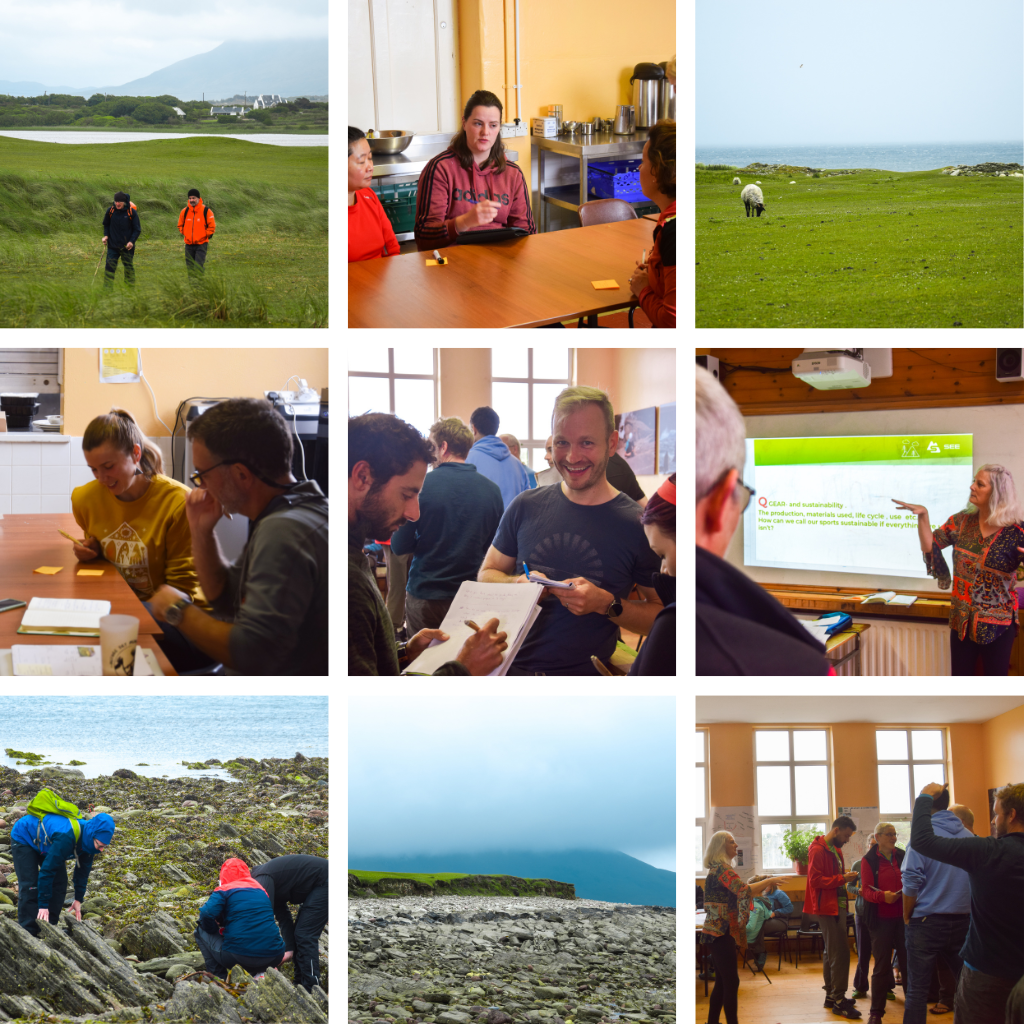
Andra Contrinou from Romania also delivered several activities which focused the partners on promoting and providing environmentally focused modules. These activities created links between different species, habitats and food sources, using games to highlight the challenges that animals face as a result of impacts from human activity.
Technical University Munich (TUM) coordinated and ran a workshop which discussed the Toolkit's development. The partner reviewed the proposed toolkit methodologies that were demonstrated during the week and discussed alterations or revisions for the toolkit.
Presentations were also delivered by Folkungaland regarding the Sweden Exchange, which will be the final exchange which takes place in August 2022.
Noel Doyle provided a review of the week and led a feedback session with the partners before officially closing the exchange.
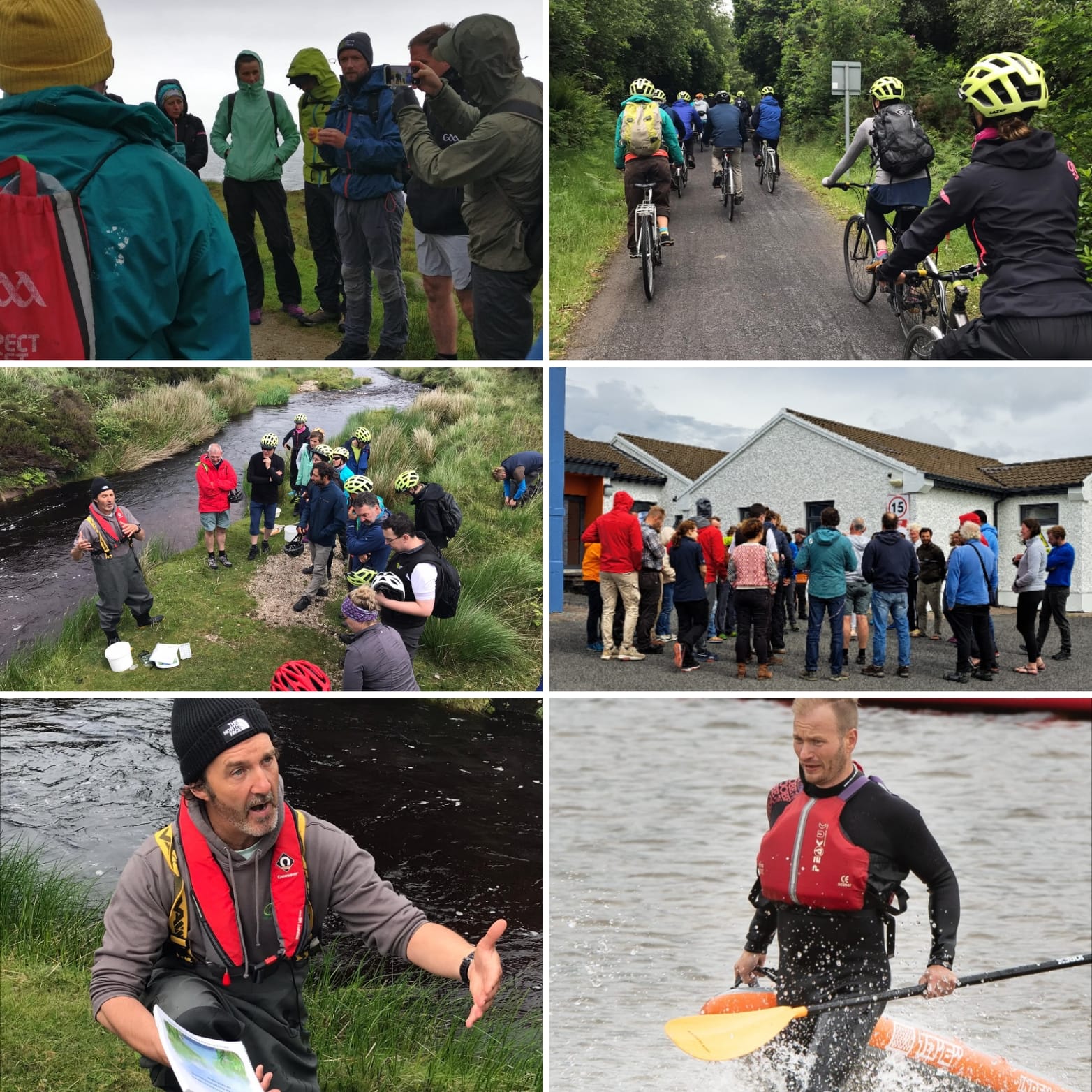
 English
English English
English

